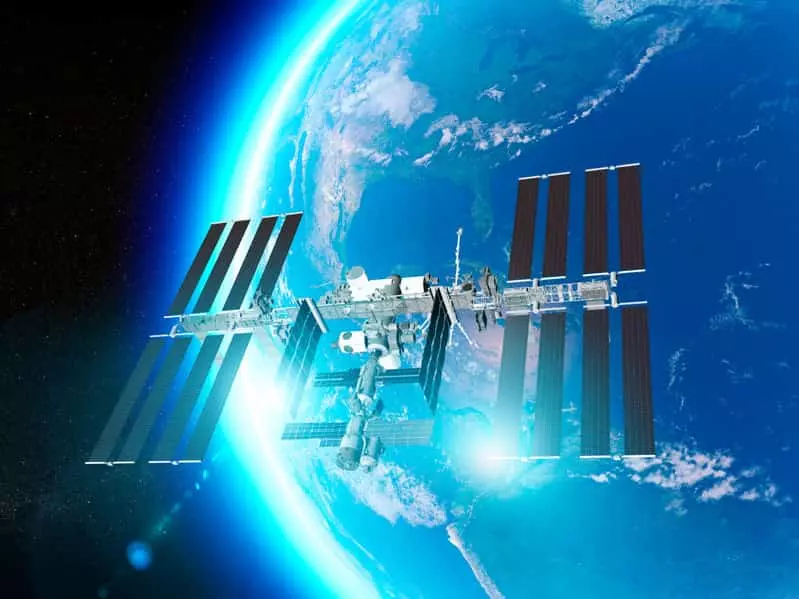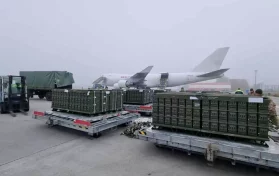
As Western allies have steadily ramped up economic sanctions on Russia, President Vladimir Putin’s top space official has threatened that Russia could deorbit the International Space Station. Currently, two Russian astronauts are on the ISS, as are four Americans and one European. Should Russia decide to do so, the station could go into an uncontrolled deorbit and eventually crash. The International Space Station orbits on a “low-Earth orbit,” but, ironically, it never passes over Russia. It does, however, orbit over many European countries, India and China, and the United States.
This Russian threat regarding the International Space Station could have detrimental effects on Western allies if – and it’s a big “if” – Russia does carry out the threat.
Should the International Space Station crash in the United States, an exact total of people that could be killed or injured is difficult to determine. The ISS is already planned to deorbit in 2031, and the plans have already been announced that NASA would calculate the event so that the ISS crashes into the Pacific Ocean. If the Russian space program no longer cooperated, the 357 feet long International Space Station could crash anywhere. Weighing a massive 400 tons, the ISS could cause catastrophic damage should it fall to earth.
Another option for Russia might involve crashing the ISS into a specific target.
Why would the Russians threaten to do this? Some political experts say that when President Joe Biden announced a sanction that would “degrade (Russia’s) aerospace industry, including their space program” (Western allies aim to limit how Russia can obtain integrated circuit products, which are necessary for planes, smart phones, and space travel), Russia took this as a direct threat. Shortly after the announcement of this sanction, Russian Roscosmos head Dmitry Rogozin tweeted: “If you block cooperation with us, who will save the ISS from an uncontrolled descent out of orbit and a fall on the United States or Europe?”
It’s important to note that engines from Russia’s Progress MS cargo ships are used to maintain the orbit of the ISS. Should Russia withdraw this source of power, an uncontrolled deorbit would result.
While Russia could do this and possibly cause the deaths of hundreds of thousands, there is no sign that they will. Even if the Russians did withdraw support, an unlikely ally has volunteered to step up and prevent an uncontrolled deorbit.
Elon Musk, who has established his own space venture, SpaceX, responded to Rogozin’s tweet by posting a graphic of the SpaceX logo, suggesting he would provide assistance should Russia carry out the threat.
Musk said in another Twitter thread that SpaceX “could dock with the ISS in the absence of the Russian Segment.” In other words, if the Russians pull the engines, a SpaceX Dragon could dock on the ISS and assist in preventing an uncontrolled deorbit.
Good thread
— Elon Musk (@elonmusk) February 26, 2022
This wouldn’t be the first time SpaceX has interacted with the International Space Station. In April 2021, SpaceX docked at the ISS to deliver four American astronauts to the space facility.
Even so, it is unlikely that Musk will be called on to assist; NASA says that sanctions won’t affect operations of the International Space Station. “NASA continues working with all our international partners, including the State Space Corporation Roscosmos, for the ongoing safe operations of the International Space Station. No changes are planned to the agency’s support for ongoing in orbit and ground station operations.”
Russia is only one of fifteen countries that are in partnership to run and utilize the International Space Station. However, the engines of their cargo ships control a great deal of the orbit of the ISS, so if the Russian space head carries out the threat, the results could be devastating.
In other news, Elon Musk has switched on his Starlink satellite network in Ukraine in answer to a plea from the Ukrainian Vice Prime Minister. Musk also tweeted that more terminals were on the way. This is intended to keep individuals connected to the internet even if Russia is able to take out local telecommunications in the Ukraine.
Starlink service is now active in Ukraine. More terminals en route.
— Elon Musk (@elonmusk) February 26, 2022





